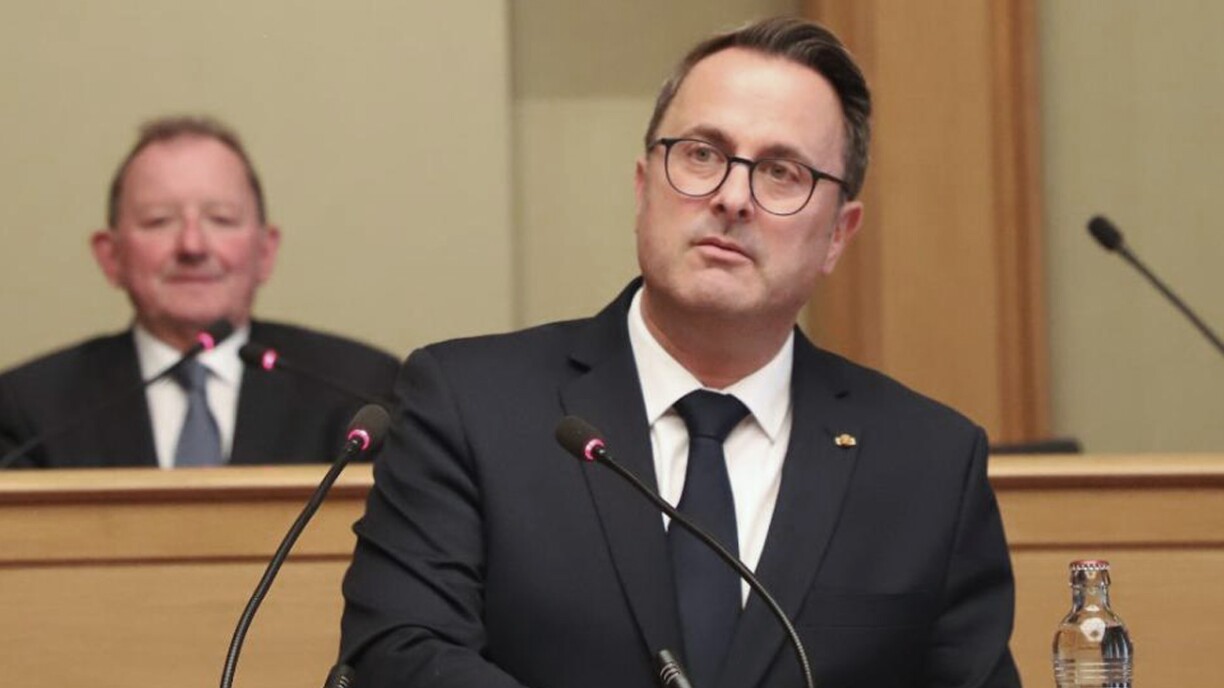
It was a 2-hour long speech with a delivery that at times reminded me of Bettel’s earlier days on the podium, but also of the fact he’s been leading the nation for almost a decade.
It was a State of the Nation delivered in the midst of high inflation and rising interest rates, a world with high levels of debt and droughts and floods, made worse by climate change, and a Europe at war in Ukraine.
Indeed, the Prime Minister evoked a fragility at the beginning of his address, making references both to the war, denouncing ‘warmongering Putin’, the pandemic and the uncertainty that both Luxembourg and the world face, and the possibility of a recession next year in Europe.
He called on his colleagues in the Chamber to keep a cool head, and make ‘the right decisions’; Which I think was a way of reminding Deputies of their role and responsibility as leaders of their nation, a way to highlight that his colourful coalition has been functioning and at work throughout these crisis.
He also called on Deputies across the aisle to stand together for the country and its citizens and promised that in these ‘extraordinary times’ when the future seems uncertain, he and his government will do everything in its power to ensure that Luxembourgers are well off in the future. I think this may have also been a nod to Ukraine’s heroic leadership, and the way in which President Zelensky and his government have taken responsibility for defending all of their nation. I think the Prime Minister has been inspired and moved from his conversations and trip to Ukraine.
But who is a Luxembourger? He made a reference, but not more than one, to foreign residents, but called them “compatriots”, and contributors to both the cultural and economic wealth of the nation. I felt that this was an embrace and statement that establishes, if not the government’s, his stance, on half the country’s residents and their place in our society. Compatriots, not ‘foreign residents’.
He also talked about the importance of a free and independent press to protect and strengthen democracy, which is why I think, more than ever, especially as our country becomes increasingly more diverse, multilingual media, such as Today and 5 Minutes become ever-more important. And why we need a lot more diversity in the voices that also get to ask questions and interact with political leaders, in order to best represent the diversity of voices and perspectives in the country. Additionally, I would hope that we encourage more cross-exposure between different-language media.
Back to the State of the Nation: he also touched on proposed reforms on taxes on property, housing (in fact he mentioned housing 47 times), the government’s handling of the pandemic and the way that all actors concerned worked together to get the country through what was an unprecedented challenge for all of us. But the speech lacked any major announcements, which wasn’t surprising, as it comes ahead of elections in a year and just a little while after major tripartite announcements.
However, the key takeaway from the speech for me, was just how much his government is willing to get involved in the financing of the social state and of investments in the future, whilst wanting to protect the country’s financial Triple A and the emphasis on climate change. We’ll get to the finances tomorrow after Yuriko Backes presents the budget, but on climate change: It was mentioned 16 times in the Prime Minister’s address. He called it the greatest and most imminent threat to humanity. And I agree, most of us do, at least the majority of us who understand the ways in which global supply chains, migratory pressures and nature works.
The ways in which the government plans to act against climate change highlighted our interdependence, between states, the need to act together, to finance, invest in, plan on and develop new sources of energy generation -- but also, the local changes required.
What I am not sure of, is why there wasn’t a mention of the large competition that Luxembourg launched on its ecological transition and the different proposals and results from that analysis but instead, some specific actions made it into the speech, such as equipping buildings with solar panels, which whilst -- well intended, are really not the major transformation required. The transition won’t be a passive one. All actors (that includes you and I) will be involved and society will have to accept and work towards changes in the way we live our lives, and I think that didn’t come across.
I think it will be interesting to see how much of this speech inspires policy and I remain optimistic about Luxembourg’s ability to act on its goals on the ecological transition.
Overall, the State of the Nation was obviously a speech, and not a policy proposal, I think it was used as a nod ahead of the double election year and I look forward to seeing the budget and party programmes next to see concrete proposals on where we are headed next.
State of the Nation summary: “Ready to take our responsibilities today, and also tomorrow”